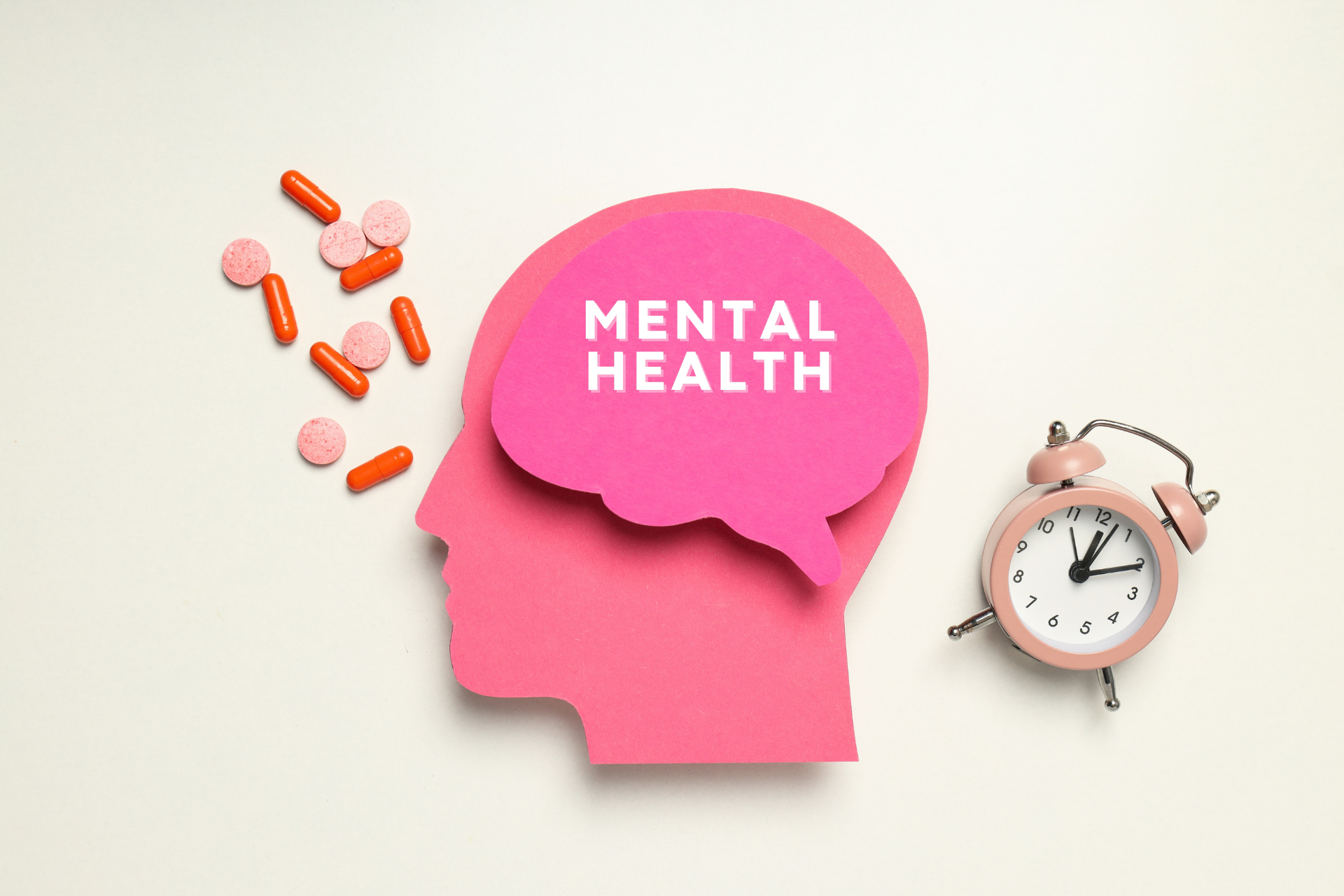Mental health improvement tips aren’t just for those in crisis, they’re essential for everyone. In today’s fast-paced, always-on culture, it’s easy to overlook our mental well-being until burnout, anxiety, or depression forces us to pause. But learning how to take care of mental health proactively can help you stay balanced, productive, and emotionally resilient.
This guide breaks down 35 practical, science-backed strategies to protect emotional well-being and build lasting psychological strength. Whether you’re seeking coping strategies for mental health challenges, looking for the best ways to maintain mental health daily, or just want simple ways to improve mental health at home, this list is designed to deliver clear, useful, and effective advice.
1. Get Enough Quality Sleep
Sleep isn’t optional. It’s foundational. Poor sleep is one of the fastest ways to wreck your emotional resilience. Studies link sleep deprivation to increased risk of anxiety, depression, and reduced cognitive performance. If you’re not getting 7-9 hours of restful sleep, your mental health suffers.
To improve your sleep, stick to a consistent bedtime, avoid screens an hour before sleep, and create a relaxing pre-bed ritual. Blackout curtains, a cooler room temperature, and reducing caffeine intake in the afternoon all contribute to better sleep hygiene.
Quality sleep is among the top ways to improve mental health at home. It recharges the brain, balances hormones, and supports memory and mood regulation. If your sleep is out of sync, many other mental health improvement tips will be harder to implement.
If you consistently struggle with insomnia or restless nights, speak to a professional. Cognitive behavioral therapy for insomnia (CBT-I) has proven to be a powerful, drug-free method to get your sleep back on track.
2. Move Your Body Daily
Regular movement isn’t about weight loss or performance; it’s about mood regulation and mental clarity. Physical activity releases endorphins and reduces cortisol levels, two critical shifts that support healthy mental functioning.
This doesn’t mean you need to hit the gym for hours. A brisk 30-minute walk, stretching, yoga, or dancing in your living room are all powerful ways to improve mental health. The key is consistency.
Exercise improves sleep, sharpens focus, and enhances self-esteem. These are all crucial elements of mental well-being. Plus, moving your body regularly gives you a sense of routine and control, especially important when stress or anxiety makes you feel overwhelmed.
For maximum benefit, choose activities you actually enjoy. That way, you’re more likely to stick with them and see lasting improvements.
3. Practice Mindfulness and Meditation
Mindfulness trains your brain to stay present, calm, and non-reactive. This is one of the best ways to maintain mental health in a chaotic world. You don’t have to sit cross-legged in silence for an hour. Even five minutes of focused breathing can shift your mental state.
Meditation improves emotional regulation, reduces anxiety, and strengthens your attention span. Over time, it can help rewire your brain to respond to stress more calmly. Apps like Headspace, Insight Timer, or Calm can guide you through simple daily practices.
By training yourself to observe thoughts without judgment, you break the cycle of rumination, a common trigger for anxiety and depression. In short, meditation builds your mental immune system.
Make it a daily ritual. Like brushing your teeth for your brain.
4. Limit Social Media Consumption
Social media can sabotage your mental health if left unchecked. Endless scrolling and constant comparison fuel feelings of inadequacy and isolation.
One of the most powerful mental health improvement tips is to set strict boundaries. Limit your use to certain times of day, uninstall triggering apps, or take a complete digital detox for a few days. Notice how your mind feels without the noise.
Reducing screen time helps you stay grounded and focus on real-world connections. It also improves sleep and attention, two critical areas linked to emotional well-being.
Consider replacing social media time with reading, journaling, or real-life conversations, activities proven to support happiness and mental clarity.
5. Eat for Your Brain
What you eat affects how you think and feel. Diets high in processed foods, sugars, and trans fats are linked to poor mood and increased risk of mental illness.
Focus on whole foods: leafy greens, berries, nuts, fish rich in omega-3s, and fermented foods like yogurt or kimchi. These support gut health, which is directly connected to brain function via the gut-brain axis.
Meal timing matters too. Skipping meals can destabilize your mood and energy levels. Consistent, balanced meals help you stay mentally sharp.
This isn’t about dieting. It’s about giving your brain the fuel it needs to thrive.

6. Connect With Supportive People
Isolation is a major risk factor for declining mental health. We are wired for connection, and nurturing meaningful relationships is one of the most overlooked ways to improve your mental health.
Whether it’s a phone call with a friend, dinner with family, or simply texting someone who gets you, these small interactions can lift your mood and provide perspective.
Make time for relationships that feel safe and positive. Distance yourself from toxic dynamics that drain your energy. This is an essential mental health tip that many overlook in the pursuit of productivity or independence.
Don’t wait for a crisis to reach out. Build support into your regular life. Community is a key pillar of mental well-being.
7. Set Clear Boundaries
One of the healthiest habits for mental well-being and happiness is learning how to say no. Boundaries protect your time, energy, and emotional state.
Overcommitting, people-pleasing, or staying silent to avoid conflict often leads to resentment and burnout. Boundaries help you stay in integrity with your needs and values.
Start by identifying situations that cause stress or leave you drained. Practice small but firm ways to assert your needs. It could be as simple as not answering work emails after hours or asking for alone time.
Setting boundaries isn’t selfish. It’s self-respect. And it gives others permission to do the same.
8. Journal Your Thoughts
Writing things down helps you process emotions, clarify your thinking, and reduce mental clutter. Journaling is one of the top ways to improve mental health at home because it’s accessible, private, and highly effective.
You don’t need to be a writer. Just let your thoughts flow. Try prompts like “What am I feeling right now?” or “What do I need today?”
Journaling helps you spot patterns, work through challenges, and articulate what you might struggle to say out loud. Over time, it builds emotional intelligence and self-awareness.
Set aside five to ten minutes each day, ideally in the morning or before bed. Make it a ritual, not a chore.
9. Try Therapy or Counseling
Talking to a trained mental health professional can be life-changing. Therapy isn’t only for when things fall apart, it’s one of the best tools to understand yourself and develop effective coping strategies for mental health.
There are many types of therapy: cognitive behavioral, psychodynamic, solution-focused, and more. A good therapist helps you explore issues, gain insight, and build practical tools for everyday challenges.
Don’t wait until you’re in crisis. Seeking help early is one of the smartest moves you can make. It shows strength, not weakness.
Affordable options exist, from sliding scale therapists to online platforms. Mental health is an investment worth making.
10. Spend Time in Nature
Nature is a proven mental health booster. Time outdoors reduces stress hormones, lowers anxiety, and improves mood. It’s one of the most natural and effective ways to improve mental health.
Even short periods of “green time,” a walk in the park, sitting under a tree, or tending to plants, can make a difference. Nature helps you reset mentally and emotionally.
Exposure to natural light also supports circadian rhythms, improving sleep and energy. All of this contributes to better emotional balance and focus.
Make it a habit. Start your day with 10 minutes outside, take meetings as walking calls, or eat lunch in the sun.
11. Create a Morning Routine
Starting your day with intention sets the tone for your mental state. A structured morning routine can anchor your focus, reduce stress, and boost productivity. It’s one of the most reliable ways to improve your mental health daily.
Begin with simple habits: stretch, drink water, journal, or meditate. Avoid diving straight into emails or social media. These early moments should be about centering yourself before the demands of the day hit.
When mornings feel chaotic, your entire day can feel off-balance. A consistent routine creates predictability that soothes the nervous system. It’s a mental health tip rooted in self-leadership.
Craft your morning around what energizes and grounds you. Even 15 intentional minutes can make a huge difference.
12. Practice Gratitude Daily
Gratitude shifts your brain from scarcity to abundance. When practiced consistently, it’s a powerful mental health improvement tip that trains your mind to focus on what’s working, rather than what’s lacking.
Write down three things you’re grateful for each day. Be specific. Instead of “family,” write “the way my sister made me laugh today.”
Gratitude helps counter negative thinking and builds emotional resilience. It’s especially helpful during difficult times when it’s easy to spiral into hopelessness or frustration.
Over time, gratitude becomes a mindset, not just a practice. It reorients your brain toward positivity and strengthens mental well-being.
13. Cut Back on Alcohol and Substances
Many people use alcohol or substances as a way to self-medicate. But these quick fixes often backfire. They disrupt sleep, intensify anxiety, and worsen depression in the long run.
If you find yourself reaching for a drink to cope, pause and ask what emotion you’re trying to numb. Developing healthier coping strategies for mental health is a more sustainable solution.
Cutting back doesn’t mean full sobriety (unless that’s right for you), but mindful consumption can radically improve your clarity, sleep, and emotional stability.
Even a small reduction can lead to noticeable improvements in mood and energy. Your brain will thank you.
14. Declutter Your Space
Your physical environment affects your mental state. Cluttered spaces often mirror a cluttered mind. One underrated way to protect emotional well-being is by creating a clean, calm living space.
Start small, a drawer, a desk, a corner of your room. Removing visual chaos reduces mental overload and creates a sense of control.
Minimalist spaces promote relaxation and focus. They make it easier to concentrate, breathe deeper, and think clearly. This is especially true when working from home.
Don’t aim for perfection. Aim for functionality and comfort. A space that feels safe and clear helps your brain do the same.
15. Prioritize Rest, Not Just Sleep
Sleep is vital, but rest goes beyond nighttime hours. Rest means giving yourself permission to pause, physically, emotionally, mentally. It’s about guilt-free breaks.
Taking time to rest improves your mood, reduces burnout, and replenishes your capacity to handle stress. This is a critical mental health tip in a culture that glorifies hustle.
Rest might mean lying down, reading, saying no to plans, or just doing nothing. The key is intentionality, choosing rest as a strategy, not a reaction to collapse.
Build rest into your schedule the way you would a meeting or workout. It’s a non-negotiable part of how to take care of mental health.
16. Volunteer Your Time
Helping others is one of the most effective ways to improve your mental health. Volunteering boosts mood, builds a sense of purpose, and reduces feelings of isolation or helplessness.
Even a small act of service, delivering groceries, mentoring a student, or joining a community cleanup, can provide emotional rewards. These experiences help shift your perspective and foster connection.
Volunteering also encourages gratitude and empathy, two traits strongly linked with mental well-being. It takes you out of your own head and connects you to something bigger than yourself.
Regular volunteer work is a proactive strategy to protect emotional well-being and develop meaningful social bonds.
17. Learn Something New
Stimulation is vital for a healthy mind. Learning a new skill, hobby, or subject strengthens neural connections and builds confidence. It’s an underrated but powerful mental health improvement tip.
You don’t have to master a foreign language or get a degree. Try cooking a new recipe, practicing a musical instrument, or watching an educational documentary.
Curiosity fuels creativity and breaks monotony. It combats feelings of stagnation, which often contribute to anxiety or depression.
Make learning a part of your weekly routine. It keeps your brain active and your outlook optimistic.
18. Laugh More Often
Laughter truly is medicine. It triggers the release of endorphins, lowers cortisol levels, and relaxes the body. As a coping strategy for mental health, humor is simple, free, and available anywhere.
Watch a stand-up comedy special, swap memes with friends, or recall funny memories. Seek out what makes you laugh without guilt.
Laughter strengthens social bonds and lightens emotional burdens. It offers a temporary reset for the nervous system and keeps perspective in check.
Making room for joy, even in hard times, is a sign of resilience. Let yourself laugh loudly and often.
19. Unplug and Embrace Silence
Constant stimulation can overwhelm your mind. Silence is not just the absence of noise; it’s a healing tool for clarity and calm.
Take 10-15 minutes daily to disconnect, no screens, no music, no talking. Just breathe, observe, and be.
Silence lowers stress and improves focus. It gives your brain a break from processing nonstop input and invites deeper reflection.
Make it a daily ritual. Silence is a simple but effective way to reset your nervous system and protect emotional well-being.
20. Reframe Negative Thoughts
Cognitive reframing is one of the most effective coping strategies for mental health. It means actively shifting your perspective on a situation to find a more balanced or positive view.
This doesn’t mean lying to yourself. It means choosing not to feed destructive thought patterns. For example, change “I failed” to “I learned something valuable.”
Journaling, therapy, and mindfulness can all help you practice reframing. It takes effort but rewires your brain over time.
Your inner dialogue shapes your reality. Train it to be your ally, not your enemy.
21. Hydrate Consistently
It sounds simple, but drinking enough water is critical to mental clarity and mood regulation. Dehydration can cause fatigue, irritability, and confusion, all of which undermine emotional well-being.
Start your day with a glass of water and keep a bottle nearby throughout. Use reminders or hydration apps if needed. Aim for about 8 cups a day, adjusting based on activity and climate.
Staying hydrated improves focus, reduces brain fog, and even helps regulate sleep. It’s one of the easiest, low-effort mental health improvement tips.
Make it a habit. Your brain, which is 75% water, will thank you.
22. Limit News Intake
While staying informed is important, overexposure to news can fuel anxiety, anger, and helplessness. Bad news hits hard when it’s constant and unfiltered.
Choose specific times to check the news and limit your sources. Avoid doomscrolling before bed or first thing in the morning.
Instead, subscribe to newsletters or curated updates that give you only the essentials. Balance news intake with positive or neutral content to help protect emotional well-being.
Mental clarity improves when your input is intentional, not reactive.
23. Set Achievable Goals
Goal-setting creates momentum and purpose. But unrealistic goals can backfire and damage self-esteem. One of the best ways to maintain mental health is to set small, specific, and realistic goals.
Break large tasks into bite-sized steps. Celebrate micro-wins along the way. Progress, not perfection, builds lasting confidence.
Use tools like SMART goals (Specific, Measurable, Achievable, Relevant, Time-bound) to stay on track and reduce overwhelm.
Feeling productive and purposeful enhances mental well-being more than random bursts of overexertion.
24. Celebrate Progress, Not Perfection
High achievers often tie their worth to outcomes. But mental health thrives when progress is acknowledged, even if it’s messy or slow.
Perfectionism fuels anxiety and imposter syndrome. Instead, learn to appreciate your effort, growth, and resilience.
Keep a journal or list of wins, big or small. Reflect on what you overcame, not just what you produced.
Self-compassion is a powerful form of mental strength. Celebrate being human.
25. Disconnect from Work Outside Work Hours
Blurring the line between work and personal time erodes mental well-being. Especially in remote or hybrid environments, boundaries around work are essential.
Avoid checking emails late at night or working through weekends. Use “Do Not Disturb” settings or auto-responders to enforce digital boundaries.
Mental recovery depends on downtime. Without it, stress accumulates and creativity crashes.
Protect your evenings and weekends like your life depends on it, because your mental health does.
26. Use Affirmations Thoughtfully
Affirmations aren’t magic, but when used with intention, they can rewire negative thought patterns. Speaking or writing affirmations helps reinforce belief systems that support confidence and calm.
Choose phrases that feel authentic. Instead of “I am perfect,” try “I am learning and growing every day.” The goal is to align affirmations with achievable truths.
Use them during moments of doubt, anxiety, or decision-making. Post them on mirrors, use apps, or journal them each morning.
Affirmations are small mental reps that build emotional strength over time, a practical tool in your mental health toolkit.
27. Embrace Creative Outlets
Art, music, writing, and other creative pursuits offer emotional release. They help process trauma, reduce stress, and promote joy. This is one of the most flexible and fun mental health improvement tips.
You don’t need to be “talented.” The point is expression, not perfection. Scribble, paint, play guitar, make digital art, just do something that lets emotion move through you.
Creativity engages different parts of your brain and helps quiet the inner critic. It also fosters mindfulness, which contributes to emotional resilience.
Block off time each week for a creative ritual. It’s one of the healthiest habits for mental well-being and happiness.
28. Build Digital Minimalism
Technology is useful, but constant notifications, multitasking, and screen addiction fry your nervous system. Digital minimalism helps you reclaim focus and mental clarity.
Turn off non-essential notifications. Organize apps into folders or move them off your home screen. Schedule phone-free zones during meals or deep work.
Less screen time means more presence, deeper thinking, and improved relationships. These all lead to a calmer, more resilient mind.
Minimalism isn’t about deprivation. It’s about choosing what truly serves your mental well-being.
29. Create a Soothing Evening Routine
Evenings are your brain’s chance to decompress. A calming bedtime ritual signals to your body that it’s safe to rest.
Dim lights, avoid screens, and do something low-stimulation, a warm shower, herbal tea, reading, or journaling. These habits reduce cortisol and help you sleep better.
Good sleep hygiene is directly linked to reduced anxiety, better memory, and stable mood. It’s one of the top ways to improve mental health at home.
Create a wind-down routine that helps you disconnect from the day. Make rest a nightly ritual, not a last-minute crash.
30. Practice Deep Breathing
Your breath is a built-in stress management tool. Controlled breathing calms the nervous system, lowers heart rate, and reduces tension.
Try techniques like box breathing (inhale-hold-exhale-hold) or the 4-7-8 method. Even one to two minutes of focused breathing can shift your state.
Deep breathing helps during panic, anger, or overwhelm. It’s discreet, free, and instantly accessible anywhere.
Make it a daily habit. Before a meeting, after waking up, or while commuting. Your nervous system craves this reset.
31. Talk About Your Feelings
Keeping emotions bottled up can lead to emotional overload or depression. Talking about your feelings normalizes them and fosters connection.
Whether with a friend, therapist, partner, or support group, verbalizing your inner world can help you feel lighter and less alone.
You don’t need to solve everything in one conversation. Just being heard is healing.
Expressing yourself out loud validates your experience and strengthens emotional regulation, a vital part of how to improve your mental health.
32. Reconnect With What Brings You Joy
Life’s demands often push joy to the sidelines. But joy isn’t optional; it’s mental nourishment.
Make a list of activities, people, or places that make you feel alive. Then deliberately schedule time for them, even just 15 minutes.
Joy boosts serotonin, buffers stress, and reminds you what makes life worth showing up for.
Prioritizing joy isn’t indulgent. It’s one of the best ways to maintain mental health in the long run.
33. Forgive Yourself Often
Everyone makes mistakes. But guilt and self-judgment eat away at your self-worth. Practicing self-forgiveness helps free you from mental stagnation.
Acknowledge the mistake, learn the lesson, and move forward. Holding onto regret only reinforces suffering.
Forgiveness is a practice, not a one-time event. The more you offer it to yourself, the easier it becomes to extend it to others.
Mental health thrives on self-compassion, not self-punishment. Let go, grow, and keep moving.
34. Create a Mental Health Plan
Don’t wait until you’re overwhelmed. Proactively create a personalized mental health plan. Identify triggers, support resources, warning signs, and go-to coping strategies.
This plan gives you a roadmap during hard times when thinking clearly is hardest. Share it with someone you trust, if needed.
Include daily habits, emergency contacts, grounding exercises, and reminders of what helps you feel better.
Having a plan in place empowers you to act early and stay in control of your mental well-being.
35. Accept That It’s OK to Not Be OK
Mental health is not a constant state of happiness. Accepting tough emotions is part of emotional resilience.
Sadness, anxiety, grief, anger, they’re all normal responses to life. Fighting them or pretending they don’t exist only prolongs the struggle.
Give yourself permission to have bad days without judgment. Reach out for support. Take breaks. Feel what needs to be felt.
This mindset shift is at the heart of sustainable mental health. It’s not about avoiding hard times. It’s about knowing how to walk through them with self-trust.
Final Thoughts on Mental Health Improvement Tips
Mental health improvement tips are not one-size-fits-all. The goal isn’t to master all 35 tips, but to integrate a few that resonate and stick with them.
Whether you’re rebuilding from burnout or simply trying to maintain mental health, consistency is more powerful than intensity. Small daily choices shape a resilient, joyful mind.
Keep this list as a guide. Check in with yourself often. And remember: taking care of your mental health isn’t selfish, it’s essential.
Your future self will thank you for every step you take today.
FAQs on Mental Health Improvement Tips
There are many top ways to improve mental health at home: journaling your thoughts, limiting social media, creating a relaxing evening routine, practicing deep breathing, and engaging in creative activities. These coping strategies for mental health are practical and can be done without external support, especially as a first step toward better well-being. Mental well-being refers to your overall emotional state, including how you handle stress, relate to others, and feel about yourself. Mental health encompasses both well-being and the presence or absence of mental disorders. Focusing on mental well-being means taking daily actions that help you feel balanced, grounded, and capable of handling life's challenges. To build a personal mental health plan, list your triggers, early warning signs, favorite coping strategies, support contacts, and daily habits that stabilize your mood. This proactive approach is one of the best ways to maintain mental health long-term and can help you stay in control during high-stress periods. Absolutely. Small, consistent lifestyle changes like staying hydrated, setting boundaries, reducing screen time, or practicing gratitude can have a huge impact on mental well-being. These habits reinforce stability, reduce anxiety, and help you build a strong foundation for emotional health. How can I improve my mental health at home without professional help?
What is mental well-being, and how is it different from mental health?
How do I create a personalized mental health plan?
Can small lifestyle changes really protect emotional well-being?




